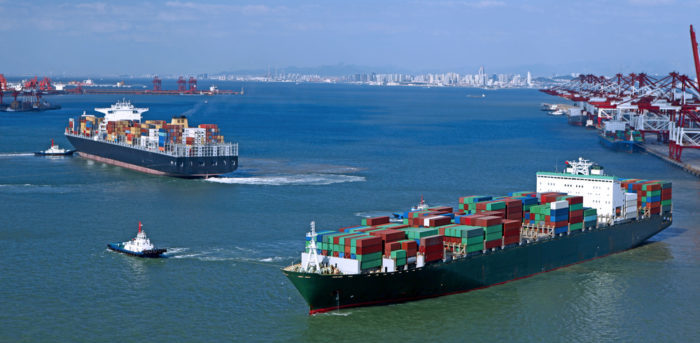The European Commission has been running a public consultation to prepare the evaluation of the Consortia Block Exemption, which expires on 25 April 2020. The evaluation seeks to determine whether the regulation should be prolonged and, if so, under which conditions. In this regard, ESPO has not taken a stance on whether the Consortia Regulation should expire or be prolonged, but stressed the need for more monitoring of the current situation, in particular as regards the impact on the market power balance and the benefits for the consumer.
Currently, shipping alliances with less than 30% of the relevant market share fall under a Consortia Block Exemption Regulation (2009) and enjoy legal certainty that their cooperation is in accordance with EU competition law. Alliances with more than 30% of the market share can be in compliance with the Treaty if they generate efficiencies and if the consumer enjoys a share of the benefits (Article 101(3)).
EU anti-trust law works with compliance self-assessment, which means that the Commission does not need to be informed about the creation of an alliance. The carriers in a consortia have to assess their own compliance themselves.
The “Consortia Regulation”, Regulation 906/2009, has already been renewed several times. Under the current consultation, which ends in April 2020, the Commission has three options:
- prolongation,
- prolongation with changes or
- expiration.
An expiration of the Consortia Block Exemption would not make alliances illegal, but would remove the legal certainty for those falling under it and would also mean an end to the guidance that is given in the Block Exemption Regulation.
The extension or expiration of the current Consortia Regulation will…not dramatically change the current practice of concluding consortia agreements, but will oblige all shipping lines to comply with the self-assessment procedures that apply to agreements falling outside the scope of the current Consortia Regulation. Moreover, the absence of Consortia Regulation could mean the absence of guidance that is given in the current Consortia Regulation, guidance that is helpful for all members of alliances and also for the other stakeholders,
…ESPO explained on its position.
In this regard, ESPO stressed the need to ensure and monitor that the benefits of any shipping alliance are shared by all, end-consumers and stakeholders, in the logistics chain alike. These benefits should not only be considered in monetary terms, but also in the quality of the service.
ESPO would moreover welcome more transparency on the current state of alliances and would encourage the Commission to keep a closer eye on the current situation and the rapidly changing market.
In particular, ESPO recommended that, when monitoring the current practices and agreements in the market, the Commission should:
- Monitor if the impact of the negotiating power of the alliances towards the port authorities, when negotiating charging and/or services in the ports, is becoming excessive;
- Monitor if the pressure on the ports investment policy is becoming excessive;
- Consider both the horizontal and vertical alliances (landside, supply chain);
- Not only monitor the traditional alliances between carriers but also look at the new players in the market;
- Monitor not only the monetary benefits passed to the user, but also consider the benefits in terms of service quality.
ESPO would encourage the consortia with a market share exceeding the scope of the consortia agreement to actively engage in a dialogue with the Commission when establishing agreements. Overall, European ports believe that it is extremely important for shipping lines, considering the high level of concentration and cooperation in the market, to consult in good time with the port authorities to aim at equivalent economies of scale on the land side and avoid inefficient (or stranded) asset investment.
In late 2018, the World Shipping Council (WSC), the European Community Shipowners’ Associations (ECSA), the International Chamber of Shipping (ICS), and the Asian Shipowners’ Association (ASA) submitted comments to the Commission supporting the extension of the regulation for five years more beyond its current 2020 expiration date, noting that vessel sharing arrangements are a fundamental part of the structure of the global liner shipping transportation network.





























































